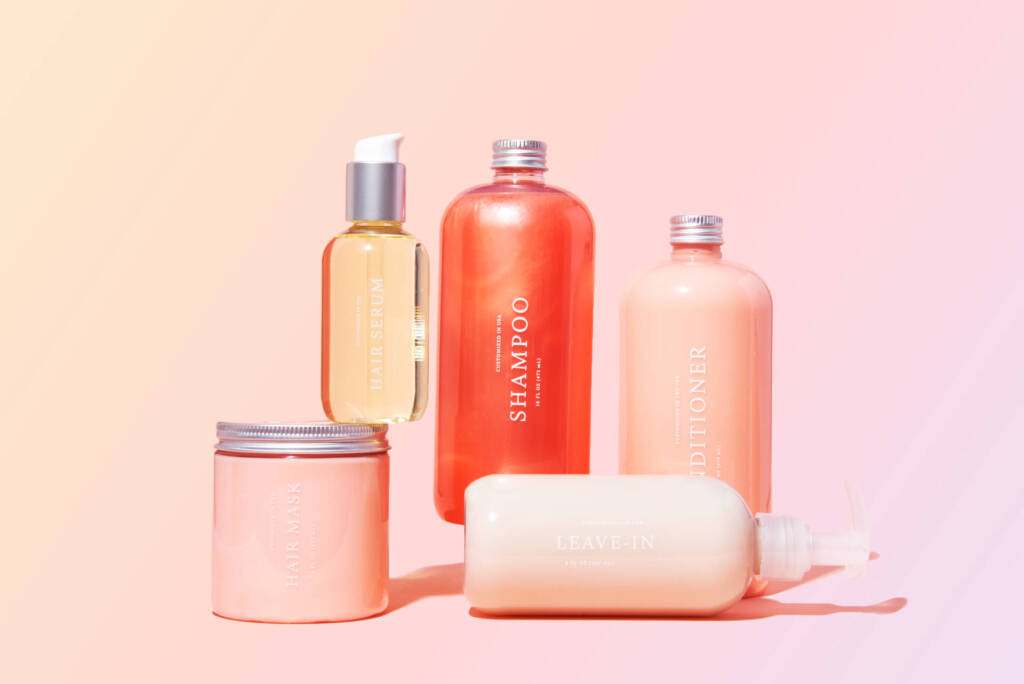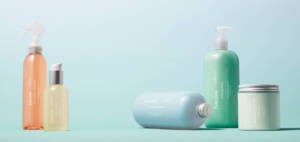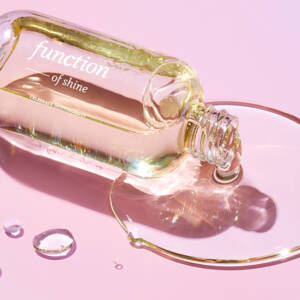Disclaimer: The information provided is not intended as medical advice. For any medical concerns, always contact your doctor.
Anyone who’s ever dabbled with hair oils would know it’s a fine line between glossy locks and greasy strands. But for all their benefits — moisturizing dry hair, hydrating a dry scalp, taming frizzy hair, and unraveling tangles — it’s easy to see why many of us still want to add a hair oil (or two) to our routines.
The question is, what’s the best oil for your hair? Maybe you’ve hit up your hairstylist for a list of expert-approved recommendations only to realize many of them are out of your budget. Or you often trawl through the aisles in Target in search of an elixir your mane so desires.
You can put a stop to the search party with our guide to the best oil for hair. From rich, moisturizing coconut oil to lightweight jojoba oil, discover which ones should be on your radar.
Which Are the Best Oils for Your Hair?
There are two main types of hair oils:
- Essential oils, which are plant-derived oils like lavender oil typically used in aromatherapy
- Carrier oils, which are used to dilute essential oils
These oils are further split into rich and moisturizing versus lightweight and hydrating. These nuances in moisturizing abilities target the wide spectrum of unique hair concerns, from dryness to oiliness.
1. Coconut Oil
When celebrities swear by coconut oil as one of the best oils for hair, chances are you want to give it a shot. Case in point: Priyanka Chopra credits her luscious, flowing mane to her DIY scalp oil treatment that consists of coconut oil and castor oil. She uses the oil blend as a scalp massage on her thick hair before shampooing it out to boost the odds of healthy hair.
And it’s not just anecdotal proof you need to hear. In a study of 140 women, researchers found that coconut oil helps enhance scalp health, which, in turn, translates to better hair health.
How coconut oil works: Lauric acid, which is abundantly present in this carrier oil, curbs fungal infections to promote a healthy scalp microbiome. The same acid also raises the scalp’s hydration levels, which is essential to ward off dryness.
The same study showed that coconut oil might help manage flaking that’s characteristic of a dry scalp. Such glowing scientific data is probably enough to convince you that coconut oil is one of the best oils for hair. But if you need more proof, a 2011 study highlighted that the oil positively benefits hair tensile strength — how much force the strands can tolerate when pulled before breaking off. In that sense, coconut oil potentially dials down the breakage associated with everyday stressors like hair brushing, heat-styling, and tight hairstyles.
Last but not least, coconut oil also does a better job than sunflower oil or mineral oil in minimizing hair protein loss. That’s because the hair shafts easily absorb coconut oil. For that reason, coconut oil works well for most people, particularly those with natural hair types that need more hydration. That said, coconut oil is ultra-moisturizing, so if you have oily hair or an oily scalp, you may find it’s a tad greasy for you.
Want to try out coconut oil for yourself? Our custom conditioner uses it in its base formulation.
2. Argan Oil
If you’ve read our post on the five potential benefits of argan oil, you’ll see why it’s one of the best oils for hair. To recap, argan oil is nourishing as it’s full of fatty acids that help replenish your mane’s hydration levels.
New research shows that when hair is pre-treated with argan oil, the strands experience less protein loss than untreated samples. Argan oil may effectively downplay signs of damaged hair like brittle strands and split ends to improve overall hair texture.
In another study, researchers revealed that using argan oil as a conditioning agent toned down hair damage induced by hair dyes. Plus, the oil eliminates frizz and flyaways while boosting shine so that your hair looks its best.
That’s why at Function of Beauty, we use argan oil (along with sunflower oil, jojoba oil, and a custom blend of natural ingredients depending on your hair goals) in our custom hair serum. The award-winning, lightweight styling serum is ideal for all hair types, especially those who want to dip their toes (or their tresses) in hair oil without going overboard on product buildup.
Our custom hair serum also acts as a heat protectant by thermally protecting your mane from heat damage up to 400 degrees. Talk about a multitasker!
3. Jojoba Oil
Rich in antioxidants, jojoba oil is well-loved in the realm of skin care. So, it’s no surprise that it enjoys superstar status as one of the best hair oils.
In folklore, jojoba oil was thought to promote healthy hair growth. While this claim needs to be substantiated with more research, a recent review confirms that jojoba oil plays down protein loss within the hair shafts, protects the fibers, and minimizes breakage. Interestingly, the same review detailed that even though jojoba oil is technically an oil, it’s structurally similar to sebum (aka the natural oils produced by the sebaceous glands) present on the scalp. As a result, the oil hydrates your hair follicles and fibers without leaving behind a greasy residue.
To reap the benefits of jojoba oil, you can apply the oil directly to damp hair after showering or use it as a DIY hair mask. For the sake of convenience, most people choose to use hair products that are formulated with jojoba oil.
4. Tea Tree Oil
Thanks to tea tree oil’s antioxidant, antibacterial, and antifungal properties, it’s one of the best oils for scalp and hair issues plagued by dryness. One study split 126 participants with flaking and itching into two groups. One group used a shampoo formulated with 5% tea tree oil while the other group did not. At the end of four weeks, the tea tree oil group saw significant relief from the scaliness, itchiness, and greasiness.
Even if you’re dandruff-free, adding tea tree oil to your haircare routine may benefit your mane. Like other oils listed above, you can mix tea tree oil with a carrier oil before applying it to your tresses. If you don’t have time for DIY hair treatments, simply choose hair products infused with it. Keep in mind that cosmetic products are not suitable treatments for medical conditions. Always talk to your doctor or dermatologist for issues such as dandruff.
5. Avocado Oil
Did you know that avocado oil is a potent source of hair-beneficial fatty acids, particularly oleic acid, linoleic acid, and linolenic acid? These three lipids are naturally present in the cuticle and cortex layers of the hair shafts and essential to maintaining optimal hair health, shine, manageability, and strength.
No matter if you have straight locks or curly hair, avocado oil is one of the best oils for hair detangling. Being a lightweight oil, it potentially lowers the odds of split ends and knots without weighing down your ‘do.
For a moisturizing boost, try haircare products infused with avocado oil. Two good options would be our custom co-wash and custom conditioner.
The Best Oil for Hair Is the One Suited to Your Tresses
There are countless hair oils on the market, but the best oil for your hair is the one suited to your unique needs. If your hair is thick, coarse, dry, or unruly, try heavier oils like coconut oil to tame it. Hair types on the fine, thin, and oily side will likely fare better with lighter oils like argan oil and jojoba oil.
If you would like to give hair oil a try, explore Function of Beauty’s custom haircare range. With the option to add up to five hair goals with each product, you’ll be able to tweak the formulations to match your mane. All you have to do is take our hair quiz today!





